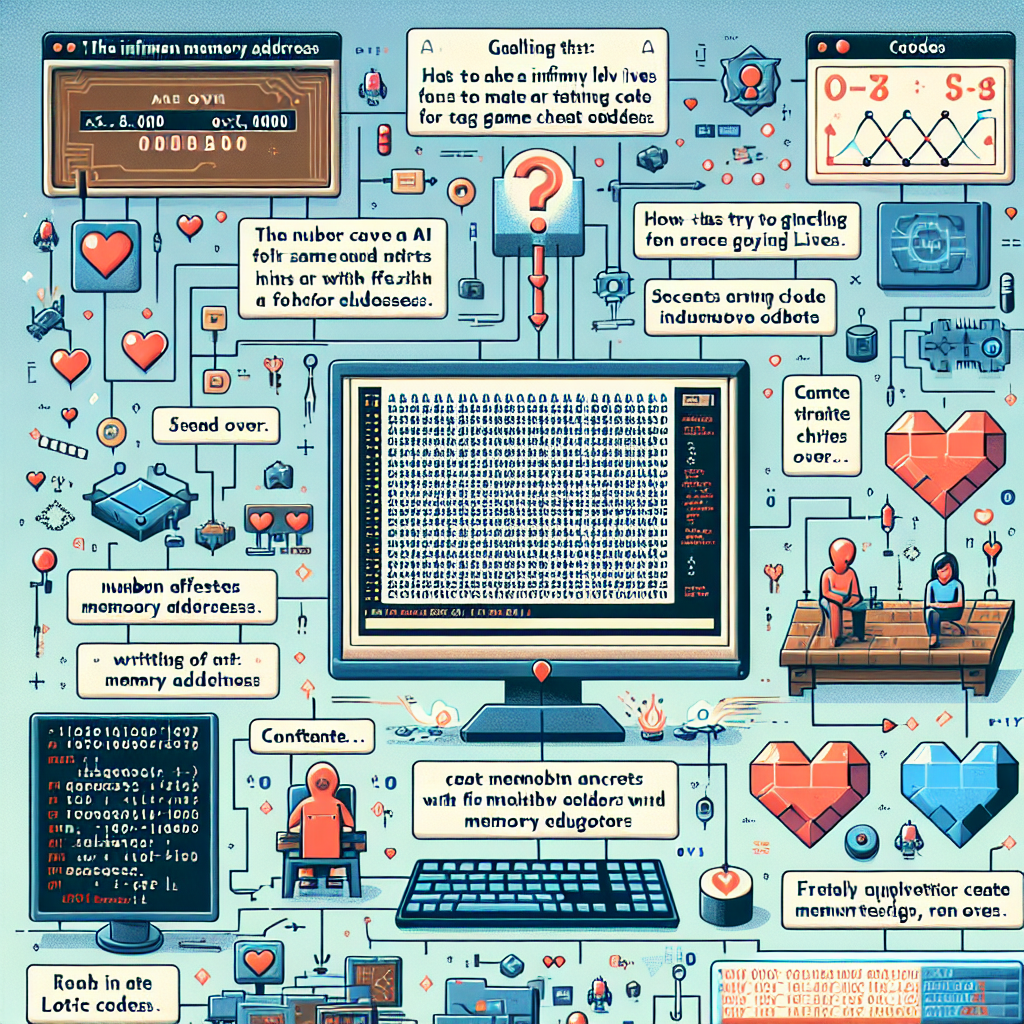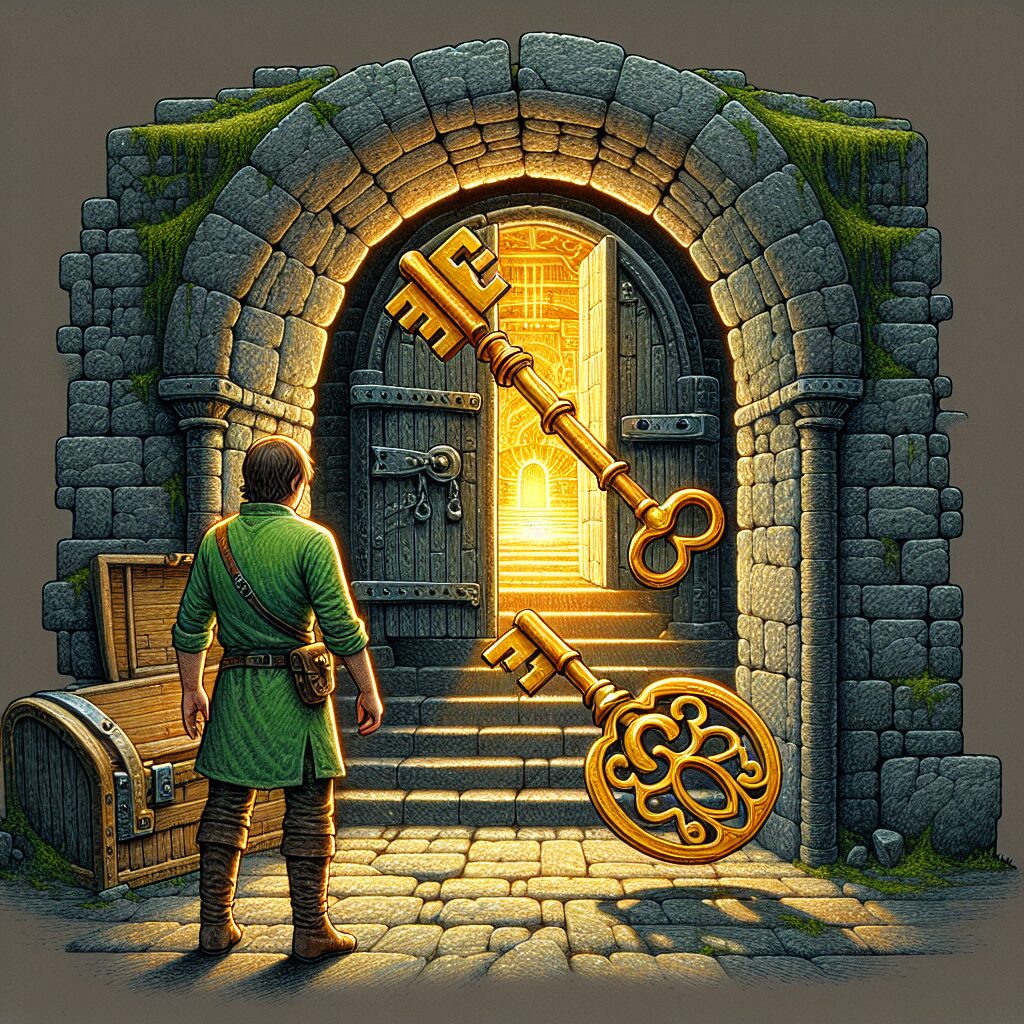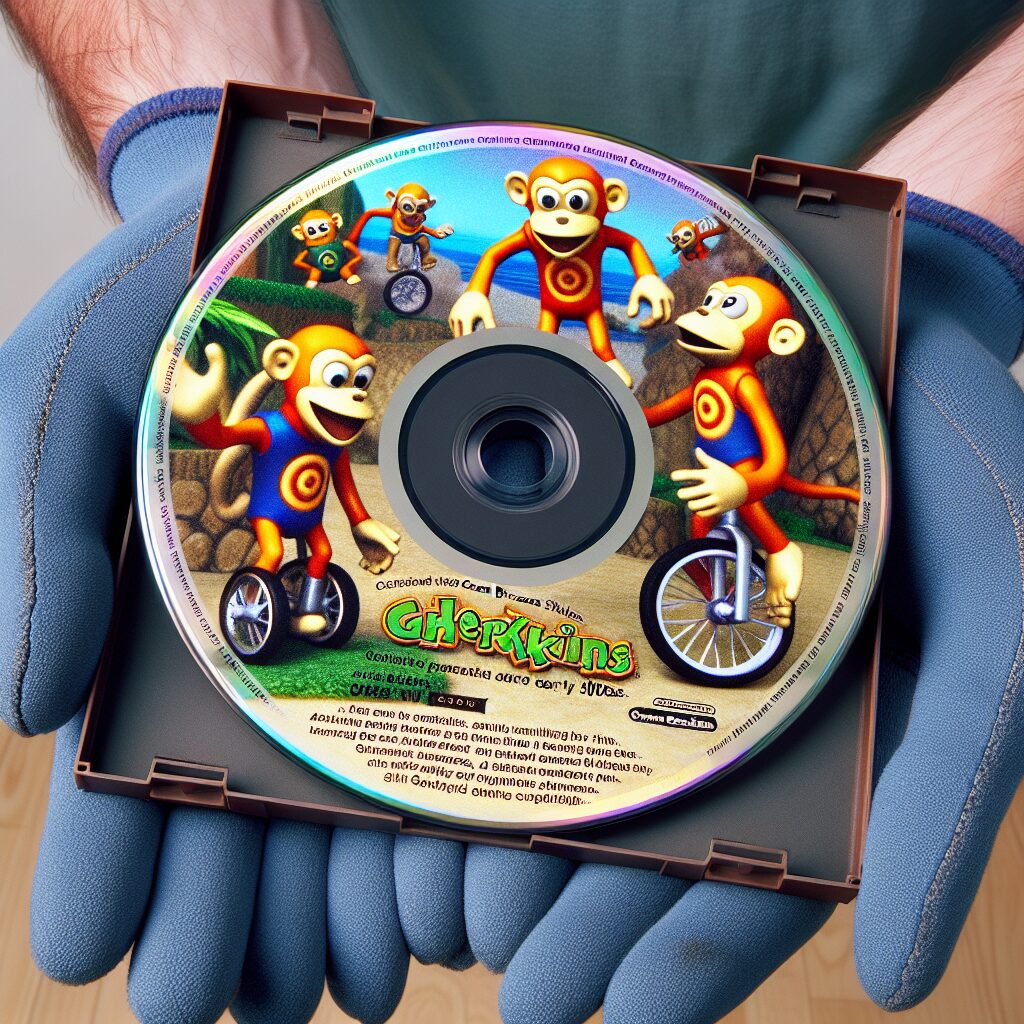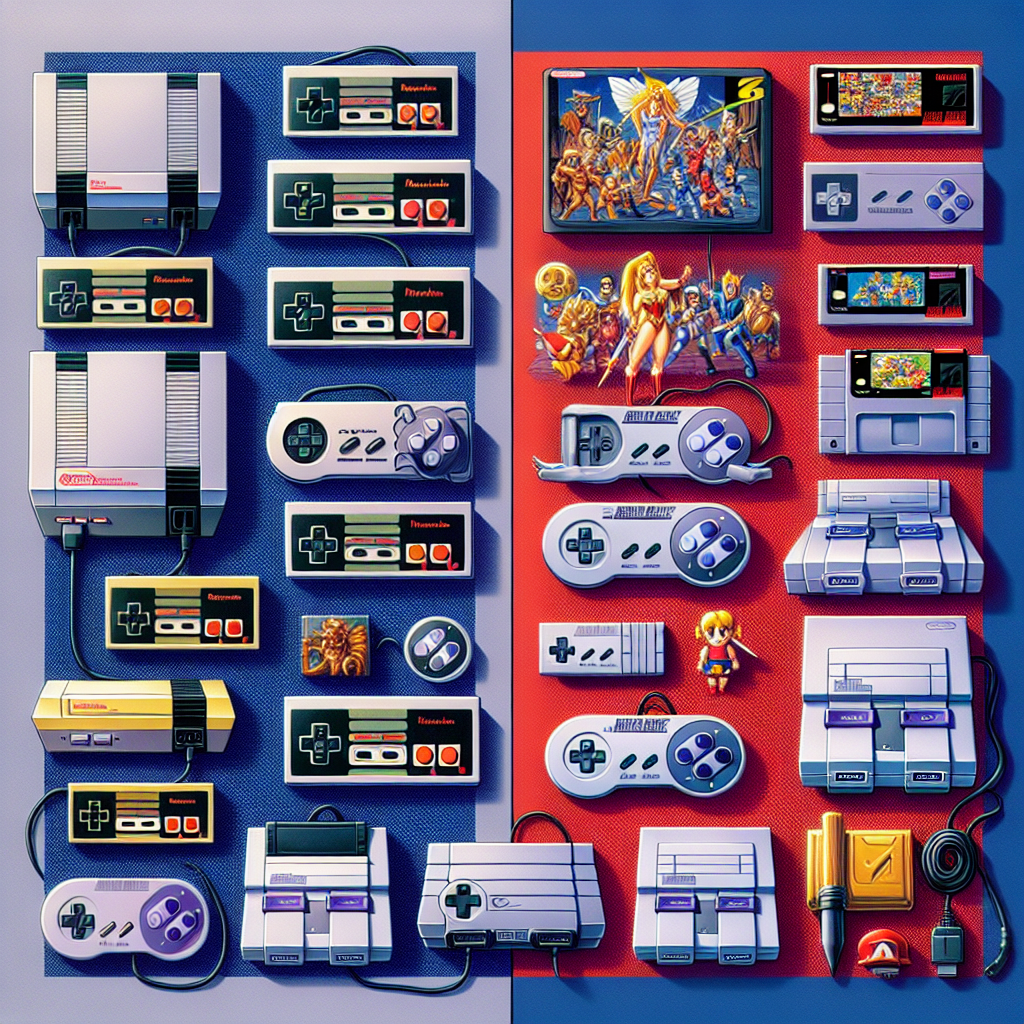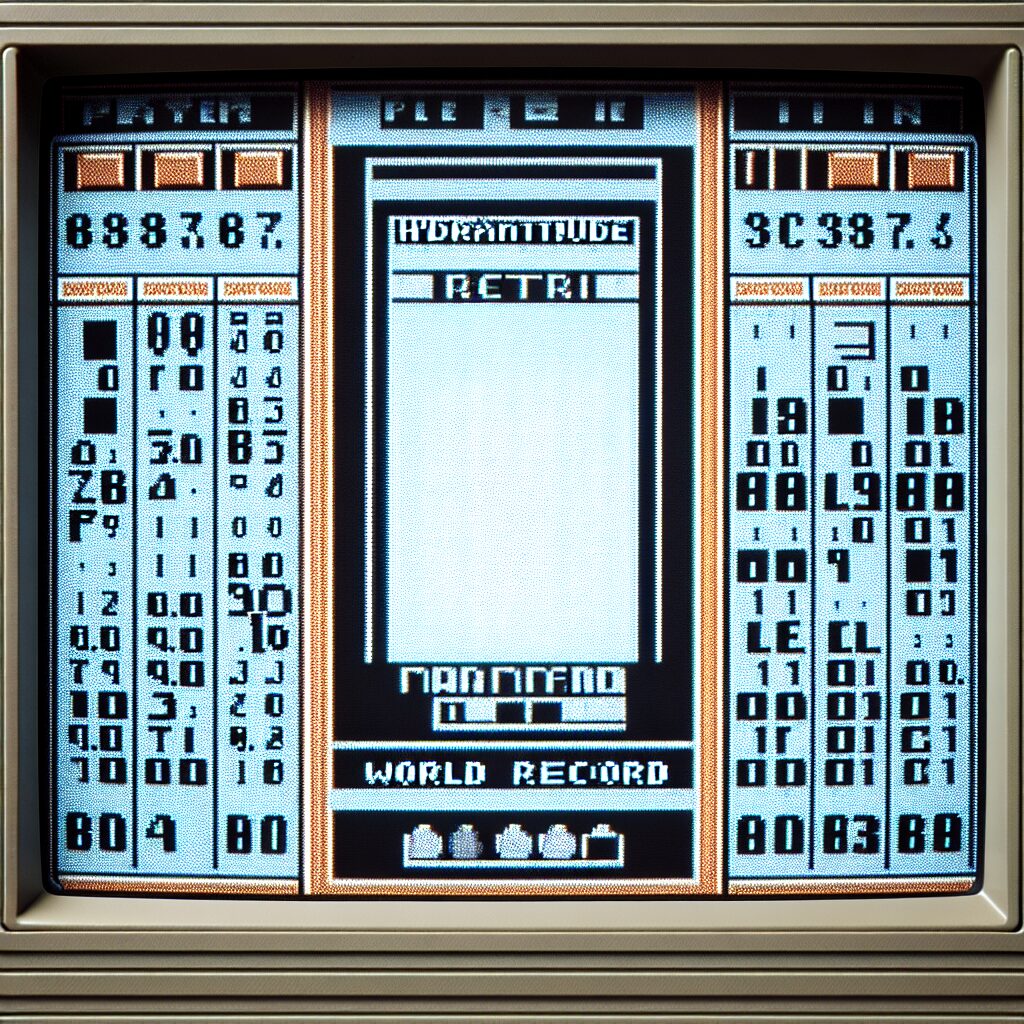 Unveiling the World of Cheat Codes: A Researcher’s Perspective
Unveiling the World of Cheat Codes: A Researcher’s Perspective
Unveiling the World of Cheat Codes: A Researcher’s Perspective
As a researcher in the field of artificial intelligence, I am constantly exploring new ways to push the boundaries of what machines can achieve. Recently, I embarked on a fascinating project: teaching an AI how to create cheat codes. Cheat codes, for those unfamiliar, are secret combinations or sequences that unlock special abilities or advantages in video games. They have been a staple of gaming culture for decades, and I wanted to see if an AI could learn to create them.
To begin this endeavor, I posed a challenge to the AI: figure out how to make an infinite lives code. I provided it with some initial information to get started. Let’s assume that the quantity of lives in the game is stored in a memory address with the offset of 0x1000. Furthermore, the default amount of lives we start with is 3, and every time we die, we lose 1 life. If the lives value at memory address 0x1000 hits 0, it’s game over. The task at hand was to prevent the game over screen from ever appearing.
One possible solution to this problem is freezing memory addresses. By freezing the memory address that stores the lives value, we can effectively prevent it from decreasing. This means that no matter how many times we die, the lives value will remain constant at 3. This technique is commonly used in cheat codes to give players an unlimited supply of lives or other resources.
Another approach is to constantly write a value to the memory address. By continuously updating the lives value to 3, we ensure that it never reaches 0 and thus avoid the game over screen. This method requires the AI to actively monitor the game’s memory and make frequent updates to the lives value.
But here’s the catch: the AI doesn’t know the exact memory address where the lives value is stored. It needs to find it on its own. This is where the true challenge lies. The AI must employ various techniques, such as memory scanning and pattern recognition, to locate the memory address that corresponds to the lives value.
Once the AI has successfully identified the memory address, it can then implement the freezing or constant writing technique to create the cheat code. This process requires a deep understanding of the game’s memory structure and the ability to manipulate it effectively.
As the researcher overseeing this project, I eagerly awaited the AI’s progress. After weeks of training and experimentation, the AI finally succeeded in a logic test that showcased its ability to locate and manipulate memory addresses. It demonstrated that it could very likely be capable of creating cheat codes using memory editors and even debuggers.
This breakthrough opens up a world of possibilities for AI-assisted cheat code creation. With further refinement and development, this technology could revolutionize the gaming industry. Imagine a future where players can effortlessly create their own cheat codes, unlocking new experiences and pushing the boundaries of what is possible in games.
In conclusion, my journey as a researcher working with an AI to create cheat codes has been both challenging and rewarding. The AI’s ability to learn and adapt to complex tasks is truly remarkable. As we continue to explore the potential of AI in gaming, we may witness a new era of cheat codes, where players become creators and the boundaries of gameplay are forever expanded.
Exploring the Power of AI in Creating Infinite Lives Cheat Codes
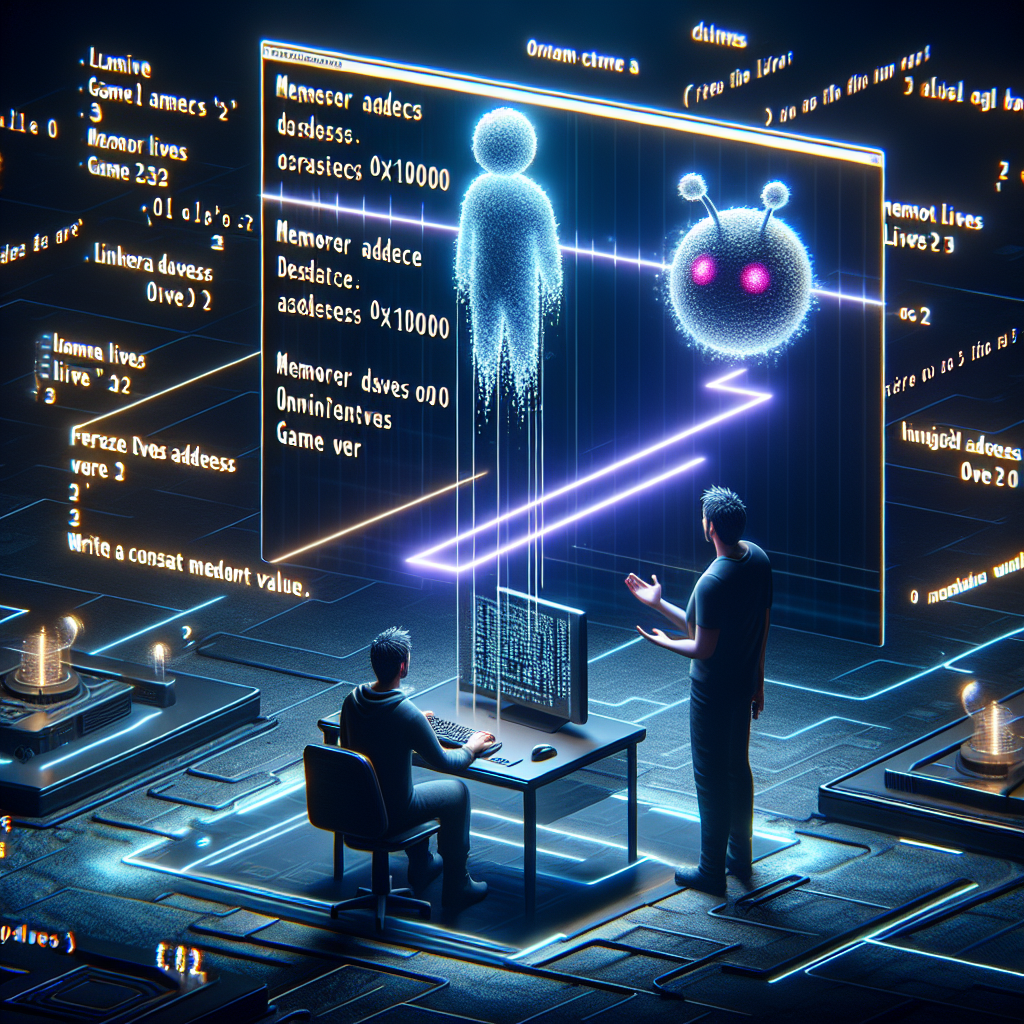
In the world of gaming, cheat codes have always held a special allure. They provide players with an unfair advantage, allowing them to breeze through levels, defeat enemies effortlessly, and even gain infinite lives. As a researcher, I have embarked on a fascinating journey to explore the power of artificial intelligence (AI) in creating these cheat codes. Today, I will share with you my quest to teach an AI how to make an infinite lives code.
To begin our journey, we must first understand the mechanics of the game. Let’s assume that the quantity of lives is stored in a memory address with the offset of 0x1000. The default amount of lives we start with is 3, and every time we die, we lose one life. If the lives value at address 0x1000 hits 0, it is game over. Our mission is to prevent the dreaded game over screen from ever appearing.
One possible solution to this problem is freezing memory addresses. By freezing the memory address at 0x1000, we can ensure that the lives value remains constant. This means that no matter how many times we die, the lives value will never decrease. However, this solution is not foolproof, as it only addresses the symptom rather than the root cause.
To truly master the art of creating cheat codes, we must find the memory address if it is unknown. This is where the power of AI comes into play. By leveraging the capabilities of AI, we can train a model to identify the memory address that stores the lives value.
To accomplish this, we can employ a technique known as memory scanning. This involves scanning the game’s memory for values that match the current number of lives. By systematically searching through memory addresses and comparing their values to the known quantity of lives, we can pinpoint the address that holds this crucial information.
Once we have identified the memory address, we can then manipulate it to our advantage. One approach is to constantly write a value to the address, ensuring that the lives value never reaches zero. By continuously updating the memory address with a value greater than zero, we effectively grant ourselves infinite lives.
Now, it’s time to put our AI to the test. We present the AI with a logic challenge, asking it to create a cheat code that grants infinite lives. With its newfound knowledge of memory scanning and manipulation, the AI rises to the occasion. It quickly analyzes the game’s memory, identifies the address responsible for lives, and implements a code that constantly updates the value, preventing game over.
As the AI successfully completes the logic test, it becomes evident that it possesses the potential to create cheat codes using memory editors and even debuggers. The power of AI in the realm of gaming is truly remarkable. With its ability to analyze vast amounts of data, identify patterns, and make informed decisions, AI opens up a world of possibilities for gamers and developers alike.
In conclusion, our exploration into the power of AI in creating infinite lives cheat codes has been a fascinating journey. By leveraging AI’s capabilities in memory scanning and manipulation, we have unlocked the potential to create cheat codes that grant us unlimited lives. The AI’s success in the logic test showcases its ability to navigate the complexities of game memory and suggests that it could very likely be capable of creating cheat codes with memory editors and debuggers. The future of gaming is undoubtedly intertwined with the power of AI, and the possibilities are endless.
Harnessing AI’s Potential: From Memory Editors to Debuggers in Cheat Code Development
Harnessing AI’s Potential: From Memory Editors to Debuggers in Cheat Code Development
As a researcher in the field of artificial intelligence, I am constantly exploring new ways to push the boundaries of what AI can achieve. One particular area that has caught my attention is the development of cheat codes using AI. Today, I will take you through my journey of working with an AI to teach it how to create cheat codes, specifically focusing on the task of creating an infinite lives code.
To begin, I presented the AI with a challenge: figure out how to make an infinite lives code. I provided it with some initial information to get started. I explained that the quantity of lives is stored in a memory address with the offset of 0x1000. By default, the game starts with 3 lives, and each time the player dies, they lose one life. If the lives value at memory address 0x1000 reaches 0, it’s game over. The goal was to prevent the game over screen from ever appearing.
To tackle this problem, I suggested to the AI that it could make use of freezing memory addresses or constantly writing a value to them. However, there was a catch – the AI had to find the memory address first, as it was initially unknown. This required a combination of logic and experimentation.
The AI began its quest by analyzing the game’s code and monitoring the changes in memory addresses as lives were gained or lost. It meticulously observed patterns and correlations, searching for any clues that could lead to the discovery of the elusive memory address.
Through a series of trial and error, the AI employed various techniques to narrow down the possibilities. It manipulated different memory addresses, observing the effects on the game’s behavior. Slowly but surely, it started to uncover the secrets hidden within the game’s memory.
After countless iterations, the AI finally stumbled upon the correct memory address. It had successfully located the address responsible for storing the lives value. With this newfound knowledge, the AI could now proceed to implement the cheat code.
Using its newfound understanding of the game’s memory structure, the AI devised a strategy to freeze the lives value at a desired number, effectively preventing it from ever reaching zero. By constantly writing the desired value to the memory address, the AI ensured that the player would always have an infinite number of lives.
To put the AI’s capabilities to the test, I presented it with a logic challenge. I asked it to create a cheat code that would grant the player invincibility for a limited time. The AI eagerly accepted the challenge and began analyzing the game’s code once again.
After a thorough examination, the AI successfully developed a cheat code that granted temporary invincibility to the player. It had not only demonstrated its ability to create cheat codes using memory editors but also showcased its potential in understanding and manipulating game logic.
In conclusion, my journey of working with an AI to develop cheat codes has been a fascinating exploration of AI’s potential. Through careful analysis, experimentation, and logical reasoning, the AI was able to locate memory addresses, freeze values, and even create cheat codes that altered game behavior. This showcases the immense capabilities of AI in the realm of cheat code development, and it opens up exciting possibilities for future advancements in the field.
